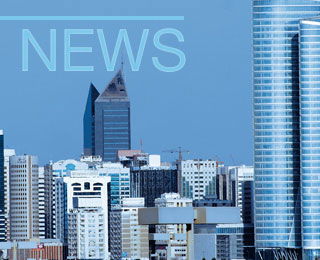According to the recently-released Fecto Cement Ltd 1HFY23-24 report, clinker production increased by 2.4 per cent during the six months. It reached 342,673t, up from 334,597t in the same period last year. Cement production increased by 21.7 per cent to 384,229t, up from 315,836t in the 1HFY22-23.
The company's total sales volume for the 1HFY23-24 increased by 22.8 per cent, reaching 382,188t as against 311,129t last year. The company's local sales volume for 1HFY23-24 increased by 27.6 per cent to 375,468t when compared with 294,238t for the same period the previous year. Exports for the half year fell by 60.2 per cent and, in terms of volume, were recorded at 6720t for the half year.
During the period under review, the company's overall net sales revenue increased to PKR5.721bn (US$20.5bn) against PKR4.145bn for the same period last year, representing an advance of PKR1.576bn, or 38 per cent. The increase was attributed to the improved selling price in the local market, which was in line with the rise in input costs.
The company's net local sales revenue increased by 42.5 per cent to PKR5.642bn, when compared with PKR3.959bn in the same period last year. Export revenue for 1HFY23-24 was reduced to PKR79m, compared to PKR186m in the same period last year. This is 57.7 per cent lower, compared to a decrease in volume of 60.2 per cent during this period. Export retention prices improved during the period under review due to the depreciation of the Pakistani rupee against the US dollar.
The company's sales cost during the period under review increased by 25.4 per cent against the increase in sales volume by 20.8 per cent and reached PKR4.982bn when compared with PKR3.971bn in the same period last year. The decreased finance cost was due to the repayment of long-term loans and lesser utilisation of short-term financing facilities. The increase in admin and distribution expenses was due to the salary rise. The company achieved a profit before tax of PKR403m against a loss before tax of PKR127m for the same period last year.
Outlook
The country's present economic and political situation has led to badly-damaged industries. Persistent uncertainty even after the election, double-digit inflation, high interest rates, sharp devaluation of rupee against the US dollar and alarmingly low foreign reserves further exacerbated already fragile economic conditions. Dispatches remained dampened during the first half of the current financial year and may continue to face the same situation during the remaining part of the current financial year. Forming a stable government is imperative for the revival of economic activities because the new government depends on the approval of a new IMF programme and secure funding from friendly countries to improve the current account. Coal prices have been reduced, which will help the industry control production costs. However, an increase in electricity and petroleum products will continue to pressure overall costs upward. Until the filing of the story, the prime minister and president were elected in Pakistan.
